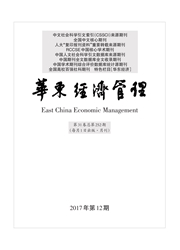

 中文摘要:
中文摘要:
文章通过选取信任、承诺、沟通作为建设项目组织中的关系规范核心要素,建立了关系规范对合作行为影响的关系模型,并引入行业惯例作为调节变量。利用问卷调查和回归分析等方法与工具,验证了不同核心要素对合作行为的影响以及行业惯例的调节作用。研究结果表明,信任、承诺、沟通等要素对项目组织参与各方合作行为有正向作用,在表现为互利互惠价值观的行业惯例中,关系规范对合作的影响作用进一步加强,对信任与合作行为关系的调节作用最大,而对其余要素的调节作用较弱。上述研究结果将为完善建设项目的关系治理提供依据。
 英文摘要:
英文摘要:
By selecting trust,commitment,and communication as the key elements of relational norms in construction project organizations,the paper builds a relational model of the impact of relational norms on cooperative behavior,and introduces industry practice as the adjustment variable. The paper verifies the impacts of different key elements on cooperative behavior as well as the regulatory effect of industry norms through questionnaire survey and regression analysis. The research resultsshow that trust,commitment and communication have positive impacts on cooperative behavior among those participants. Inthe context of industry practice which can be expressed mainly by mutual profitable values,the impact of relational norms oncooperation is further strengthened. The regulatory effect of relational norms on the relationship between trust and cooperativebehavior is biggest,whereas it is weaker on other elements. The research might provide basic guidelines for relational governance improvement in construction projects.
 同期刊论文项目
同期刊论文项目
 同项目期刊论文
同项目期刊论文
 期刊信息
期刊信息
